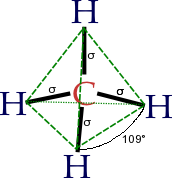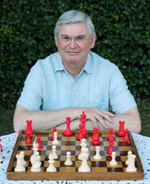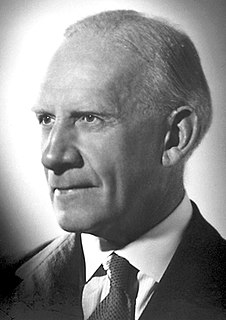
Roger William Alder, FRS is an Emeritus Professor of organic chemistry at the University of Bristol. [1]

Fellowship of the Royal Society is an award granted to individuals that the Royal Society of London judges to have made a 'substantial contribution to the improvement of natural knowledge, including mathematics, engineering science and medical science'.

Organic chemistry is the chemistry subdiscipline for the scientific study of structure, properties, and reactions of organic compounds and organic materials. Study of structure determines their chemical composition and formula. Study of properties includes physical and chemical properties, and evaluation of chemical reactivity to understand their behavior. The study of organic reactions includes the chemical synthesis of natural products, drugs, and polymers, and study of individual organic molecules in the laboratory and via theoretical study.

The University of Bristol is a red brick research university located in Bristol, United Kingdom. It received its royal charter in 1909, although like the University of the West of England and the University of Bath, it can trace its roots to the Merchant Venturers' Technical College, founded as a school in 1595 by the Society of Merchant Venturers. Its key predecessor institution, University College, Bristol, had been in existence since 1876.
His research involves the study of novel compounds with unusual properties, such as proton sponges [2] [3] and stable carbenes. [2] [4]

1,8-Bis(dimethylamino)naphthalene is an organic compound with the formula C10H6(NMe2)2 (Me = methyl). It is classified as a peri-naphthalene, i.e. a 1,8-disubstituted derivative of naphthalene. Owing to its unusual structure, it exhibits exceptional basicity. It is often referred by the trade name Proton Sponge, a trademark of Sigma-Aldrich.
Alder received the Royal Society of Chemistry Bader Award for organic chemistry in 1993. [5] He has been a fellow of the Royal Society since 2007. [2]

The Royal Society of Chemistry (RSC) is a learned society in the United Kingdom with the goal of "advancing the chemical sciences". It was formed in 1980 from the amalgamation of the Chemical Society, the Royal Institute of Chemistry, the Faraday Society, and the Society for Analytical Chemistry with a new Royal Charter and the dual role of learned society and professional body. At its inception, the Society had a combined membership of 34,000 in the UK and a further 8,000 abroad. The headquarters of the Society are at Burlington House, Piccadilly, London. It also has offices in Thomas Graham House in Cambridge where RSC Publishing is based. The Society has offices in the United States at the University City Science Center, Philadelphia, in both Beijing and Shanghai, China and Bangalore, India. The organisation carries out research, publishes journals, books and databases, as well as hosting conferences, seminars and workshops. It is the professional body for chemistry in the UK, with the ability to award the status of Chartered Chemist (CChem) and, through the Science Council the awards of Chartered Scientist (CSci), Registered Scientist (RSci) and Registered Science Technician (RScTech) to suitably qualified candidates. The designation FRSC is given to a group of elected Fellows of the society who have made major contributions to chemistry and other interface disciplines such as biological chemistry. The names of Fellows are published each year in The Times (London). Honorary Fellowship of the Society ("HonFRSC") is awarded for distinguished service in the field of chemistry.








